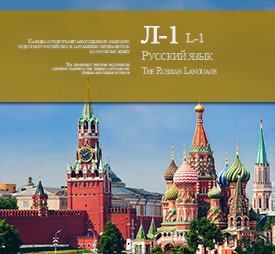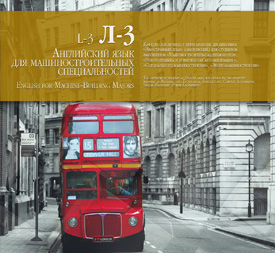On Tuesday,18th November, and Wednesday, 19th November 2014 the Linguistic Department at Bauman State Technical University hosted International Conference dedicated to Current Problems of Linguistics &FLT, Ways& Methods of their Solution devoted to the 50th Anniversary of the Fundamental Sciences Department and the 10th Anniversary of the Linguistics Department of Bauman Moscow State technical University. The conference welcomed Russian and foreign guests and identified the major issues of modern linguistics, especially the issue of teaching Russian as a foreign language at technical universities.
Plenary session was declared open with a speech delivered by president for Foreign Languages and Regional Studies Department of Moscow State Lomonosov University, Doctor of Philology, professor of MSLU, President-founder of national association of English Language Teachers in Russia,President of National Applied Linguistics Society, President of Research and Methodology Council for Foreign Languages ofMinistry of Education of the Russian Federation, Svetlana Grigorjevna Ter-Minasova. S.G.Ter-Minasova presented her report “Actual Problems of Linguistic Education for Non-language Tertiary Professional Education in Russia” and spoke in favour of recently recommenced programs of teaching Russian language to learners of foreign languages as part of teaching effort aimed at facilitating student mastery- of- mother tongue skill acquisition. S.G.Ter-Minasova spoke of students evolving in international foreign language learning programs and gaining valuable perspective of how their professional skills can be developed through foreign language learning and as to what dimension will be added to their career acceleration portfolio as a result of integrating foreign language learning into their schedule of studies. Ter-Minasova noted that the level of foreign language lexis mastery with Russian students remains largely unchangeably high whereas teaching phonetics will largely need to be reconsidered and in most cases introduced to the overall number of aspects taught.She highlighted the importance of students of non-linguistic university departments availing themselves of available language learning programs as part of means of enhancing their professional skills.
Professor, Head of Foreign Languages Departmentof Moscow National Research University Higher School of Economics (HSE),Member of Office of Research and Methodology Council for Foreign Languages of Russian Ministry of Education, expert of Federal Committee for Unified State Exam (EGE), Elena Nikolaevna Solovova covered the Mission of Language Departments in Creating Bilingual University Environment within the program 5-100.E.N.Solovova spoke of the world’s 100 best universities and five top-most universities known worldwide and shared her view on measures imbued with implementation potential that are capable of maximizing the chances for Russian universities to achieve a place among the five world’s top-ranked universities which are California Institute of Technology,Harvard University,University of Oxford,Stanford University and University of Cambridge respectively.
Foreign guests of the conference made valuable contributions to the conference proceedings.Foreign Language Teaching attache of the US Embassy in Moscow Jerrold Frank delivered a presentation “Who Decides What Learners Need? Defining Expectations in The ESP Classroom”. Mr.Frank touched upon the subject of skill-specific vocabulary acquisition and spoke of meaningful ways of communicating realities to different audiences, about identifying the needs and developing curriculum. Mr.Frank clarified the RAFT model(Role Audience Format Topic)as conducive to an improved catering for the specific needs of teaching English for specific purposes (ESP) and a good model for planning and evaluation. J.Frank postulated a teacher’s role in ESP as that of providing students with multiple scenarios and authentic assessment materials.Mr.Frank characterized the academic capability of Russian students as highly commendable and highlighted the fact that academic and cultural ties between Russia and USA should inspire more international foreign language learner programs.
John Kotnarowski, English Language Teacher at National University of Science and Technology "MISIS" ( former State Technological University "Moscow Institute of Steel and Alloys"),specialist for ESP presented the PIE –C Technique (Supporting Point-Identification and exposure of a supporting point-Explanation of the connection-Conclusion) as an efficient means of promoting coherence and cohesion in English academic Writing.
Natalia Konstantinovna Bochorishvilli, Head of Cambridge University PressOffice in Russia, delivered a speech on New Approaches in English Language Teaching. N.K.Bochorishvilli highlighted the major new tendencies in teaching English.
Duncan Christelow, Leading Specialist for Blended Learning Programs and on-line English Courses Development of Cambridge University Press, and Graham Skerritt, editor at Cambridge University Press, conducted a workshop “Effective Teaching using Blended Learning Approach”.Mr. Christelow and Mr.Skerritt provided a valuable insight into the major activities comprised by the 24/7/365 model,highlighted the differences between Content and Language Integrated Learning(CLIL) and English as a Medium for Instruction (EMI) and outlined the advantages of Blended learning systems.Mr. Christelow spoke of EdModo as a platform that allows for extending the scope of student activity and creates efficient leverage for teachers in providing agile techniques and options for analysis and evaluation of student work.Blended Learning successfully combines teacher-assisted learning techniques and distance learning systems, ultimately using the synergy of both.Blended learning has paved way for adaptive learning which is essentially an approach for teaching language to students with hearing disabilities and deafness.Remarkably,adaptive learning is widely practiced at Bauman State Technical University as long as the university has 250 students with hearing disabilities.The combination of blended and adaptive learning techniques enables greater accessibility of learning materials and valuable professional skills.
Irina Vasiljeva, assistant professor, Candidate of Philological Science,ESP Teacher at National Research University Higher School of Economics (HSE), held a workshop “Wiki’s Potential for arranging Efficient Blended Courses” and shared her secret of managing and supervising student distant-learning activities.Wiki is a unique instrument for analyzing site content compiled and contributed by students and is absolutely fascinating ,easy and enjoyable to use.
Svetlana Anatoljevna Suchkova, professor, English Teacher at Samara State Aerospace University, English Language Teaching methodology specialist conducted a workshop “Academic Writing: What to start With?” that was aimed at building confidence in applying various Academic Writing strategies and honing Academic Writing skills at technical universities.








